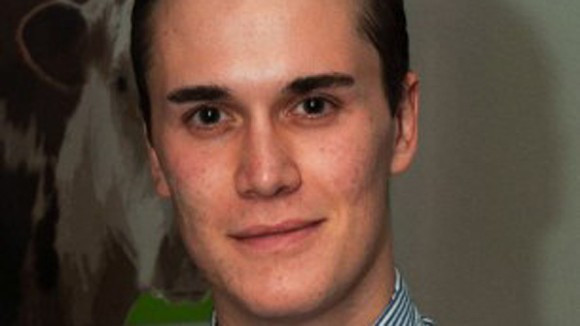Moritz Erhardt, Merrill Lynch and 'City Slavery': One Dead Intern Won't Change Anything [BLOG]
The author is currently interning at a bulge bracket investment bank in London.

There is a strong and intertwined community of investment banking interns across the City and the news of Moritz Erhardt's death has hit a lot of us very personally, whether we were acquainted with him or not. Given the pressures that many of us have seen or faced directly, it's easy for most of us to relate to Moritz, who worked a series of all-nighters in the weeks prior to his death. Although sad, for many of us the death of an intern has not come as an unfathomable shock.
Rumours of the tragedy spread like wildfire around all of the banks on Friday, but were only confirmed as fact more gradually over the weekend. And, for the most part, people initially dismissed the rumours off hand, showing a complete disbelief that the competitive culture of banking could not only push an intern right to the edge, but could actually lead to his death.
This summer, I've been working very long and tiring hours during the course of my internship in an investment banking division of a large bank in the City. However, I've never done an all-nighter. The concept of a 'magic roundabout' - where a taxi waits for you to have a shower at home after an all-nighter, before taking you back into the office - was a mystery to me until this week. I have always stuck to what I've felt was a manageable daily workload, whether that's meant missing a few deadlines or not. Most interns will do the same. Some push harder and some push less.
One of the first documents you're asked to sign as an intern is a declaration renouncing your right to the EU Working Time Directive. We all sign it, and students by and large fully expect long hours when entering the industry. But I've seen it myself - some students really just don't know how to look after themselves yet. There's definitely something to the argument that some interns are simply too young, others too naïve, and some just too immature to be paid so highly and pushed so hard with little support.
The short horizon of the internship gives interns a goal to work towards, a target and an end date. All that matters to many is that they get to the finish line with a job offer. Sleep is often disregarded in the short-term with the expectation of sleep to come post-internship. It's all too tempting and all too unhealthy a cocktail to survive on for nine to ten weeks.
Erhardt's Death has been Dismissed
For many people though, myself included, this tragedy has added a lot of perspective onto our M&A internship experiences. Some are no doubt questioning work-life balance a lot more than we would have previously. It's clear that bankers are not invincible. Many more interns and analysts are now weighing in the more obscure health effects that such a lifestyle may bring. This event definitely makes it likely that fewer interns will take on jobs after graduation. And to a lesser extent it will also encourage analysts to push back when they've got an unmanageable workload.
But for many more senior bankers, this tragedy has almost already been dismissed with scepticism that anything will change. Part of this is no doubt due to the 'thick skin' many bankers have been forced to develop after years of banker bashing. It's also due to the expectation that any enthusiastic and committed youth will push themselves hard at the start of their careers, and there's always the risk that there may be a small minority who don't know where their limit lies. But more of it seems to be through experience - these people have often done countless all-nighters over the years, and survived. They know it is possible and doubt whether without the existence of contextual triggers such a tragedy could've occurred.
It's because of this that at the moment the long-term impact of this tragedy, and the potential for it to save future interns from so-called 'City slavery', is at the moment unclear. Banks are generally very reluctant to change - as with any organisation, culture is ingrained and slow to evolve. For as long as the exact circumstances of this awful event are unclear, I'd expect to see little momentum behind any calls for change.

Some HR teams have now apparently 'reminded' teams and analysts about the dangers of overworking interns - this actually means they've told them for the first time. In the short-term this is likely to help some interns out, but what about next year?
The next application process is already swinging into action. For as long as students flock to take internships in investment banks, it will be the banks that have the upper hand, and whether students are demanded to or not, they will feel the pressure to work incredibly long hours. It's difficult not to feel pressure to give your utmost when you know how many people would jump to take the opportunity you hold.
Moritz's death highlights some deep cracks in the structure and culture of investment banking internships. It is inevitable that highly competitive internship programmes will continue into the future, but their focus on rewarding manic short-term input must shift.
This blog was first published in eFinancialCareers
© Copyright IBTimes 2025. All rights reserved.




















